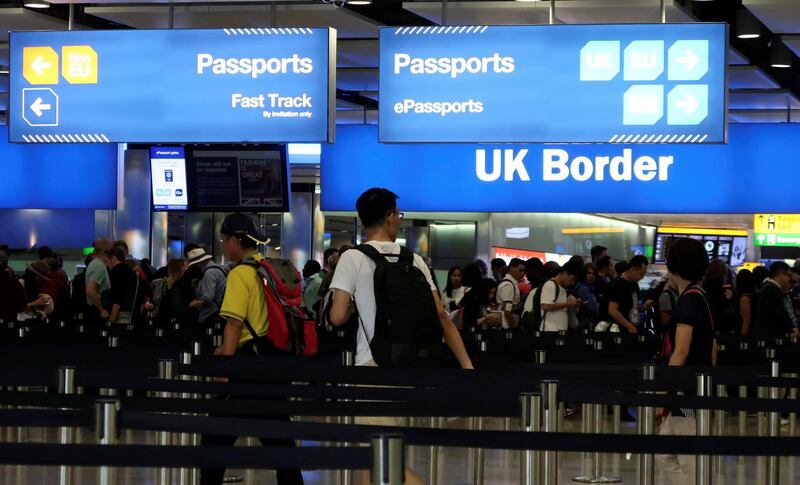Passengers from the Middle East to Britain might not have to worry about filling in landing cards on their flights for much longer, after the British government announced plans to scrap the system later this year.
Currently visitors and migrants from outside of the European Union must fill in cards before or on arrival at airports and ports, revealing where they are staying in Britain and for how long.
Plans put forward by the Home Office last weekend, designed to cut costs and as well as long queues at passport control, would scrap the paper cards in favour of a new digital system.
The proposal, which is subject to consultation, has attracted criticism from the British press as well as a former immigration official, who warned that the existing cards were a “useful intelligence tool”.
“It seems the most incredible haste to abandon the system of landing cards,” David Wood, a former director general at the Home Office, told the Times. “We could access them to find out where someone was staying or where they had stayed if we were carrying out an investigation.”
Around 16 million visitors and migrants a year fill in landing cards, a system which was introduced in 1971.
The move is part of a drive to transform Britain’s border controls through increasing application of digital technology.
Immigration minister Brandon Lewis said on Sunday: 'We are modernising border technology to ensure Border Force staff stop dealing with outdated paperwork and can continue to focus on security and protecting the public.
“A huge export for the UK is our tourism industry, so I want people to come through our ports and have a really positive experience.”
The Home Office has estimated that updating the system could save up to £2.8million (Dh13.4m) a year in Border Force officer time alone.
In place of the traditional paper cards, Border Force would use digitally collected data from passengers ahead of arrival and at the border. Criminal and terrorist watchlists would still be checked for any non-EU visitor.
If the proposal makes it past the consultation period, which is due to end on September 2, the changes would be implemented at the beginning of October.
But the new digital system might not be able to provide data on passenger information until the end of 2017, according to a consultation document released on Monday.
The Home Office responded to concerns over what impact the proposed system change might have on keeping borders secure.
A spokesman said: “The withdrawal of landing cards will not result in the loss of any data that is used for security checks.
“All passengers arriving from outside the EU will continue to be checked against the variety of police, security and immigration watch lists which are used to verify the identity and confirm the status of every passenger arriving at UK airports.
“This is the latest stage in an ongoing and wide-reaching consultation and security and immigration colleagues have already been involved in the development of this proposal.”






